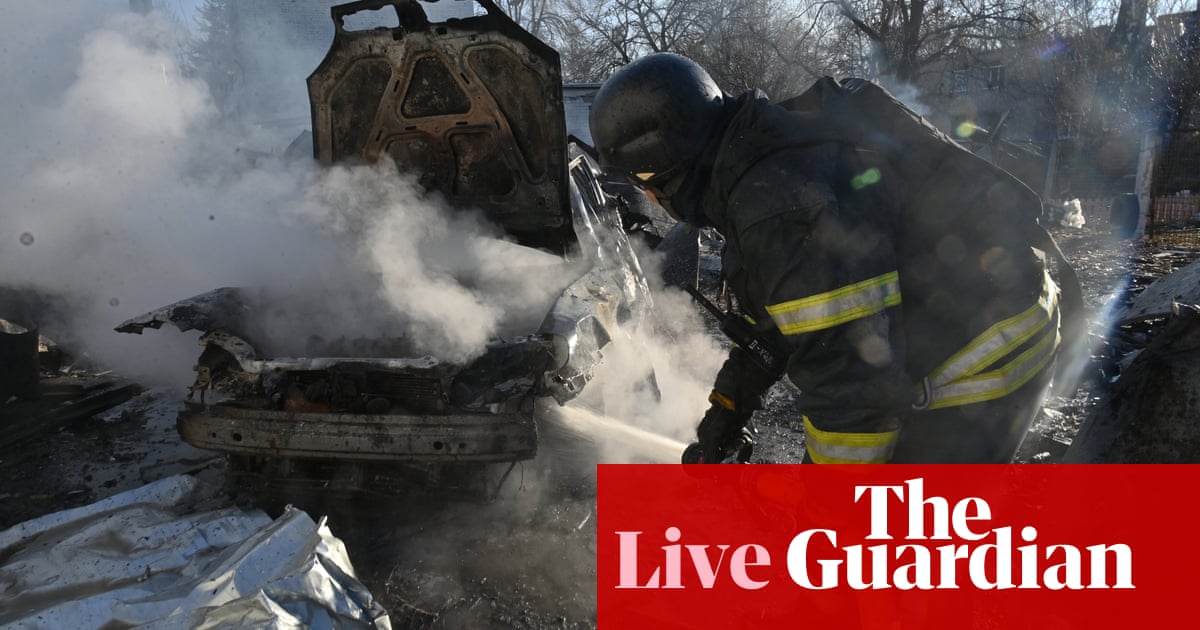The Pipeline: DWS targets €4bn, Ancala’s stake sale, Valentine Andrews joins Manulife

First look
DWS aims for €4bn+ for fourth PEIF
Frankfurt-based DWS’s newly-launched Pan European Infrastructure Fund IV will be aiming for €4 billion-plus, CEO Stefan Hoops said when presenting its Q4 2023 earnings. This is a step up from the third vintage fund’s target of €2.5 billion and final close in June 2021 at €3 billion.
“We feel good about infrastructure,” Hoops said, and infrastructure will be a key theme for DWS going forward.
“Looking ahead, for the first quarter of 2024, we are aiming to launch products across all our three pillars, active, passive and alternatives, with a thematic focus on ESG and infrastructure,” said CFO Markus Kobler.
There could be a part to play for Indian infrastructure. “What India will have to do is have significant investment in infrastructure, logistics, trains, airports and so on and so forth,” Hoops said.
He added: “We like the market. But again, it’s simply one where if you try to enter as a foreigner, you’re doomed to fail. So that’s why it’s more likely to be inorganic.”
Tell that to KKR, after their recent $6.4 billion APAC fundraising success.
Ancala offloads significant minority stake to Vontobel
London-based infrastructure manager Ancala has become the latest example of infrastructure consolidation after it agreed to sell what the buyer, Swiss bank Vontobel, said in a statement is a “significant minority stake”.
Ancala is led by Spence Clunie and will continue to be run independently, retaining full control over its investment and governance processes, according to statements.
This transaction marks Vontobel’s first entry into the institutional private markets following a couple of years of declining returns from its core institutional asset management unit. Ancala’s €4 billion of AUM across 18 assets will now be at the heart of Vontobel’s private markets offering, though dwarfed by Vontobel’s SFr264.9 billion ($303 billion; €281.3 billion) of total client assets as of 31 December 2023.
On the same day as the deal was announced, Vontobel also promised to cut costs by SFr100 million, although management bonuses increased substantially.
Whatever its troubles, Vontobel is catching Ancala at a hight point.
New Schroders Greencoat fund in for the long haul
Schroders has added another fund to its suite of products with the launch of the Schroders Greencoat Global Renewables+ Long-Term Asset Fund.
The vehicle “focuses solely on investments in renewable energy and energy transition infrastructure”, Schroders Capital said in a statement, describing it as the UK’s first LTAF with that remit.
It should not be confused with the Schroders Capital Climate+ LTAF launched last year, which targets climate investments across private markets, Duncan Hale, portfolio manager at Schroders Greencoat, told The Pipeline.
The latest fund has a semi-liquid structure. That makes it attractive for both defined benefit and defined contribution UK pensions, particularly for the former “who are investing for a total return (growth) rather than for cashflow matching purposes”, Hale said. “The potential to exit at a time of their choosing, with the liquidity parameters of the fund is helpful for DB future planning.”
Hale was coy on the fund’s target size, but said that it is designed to attract significant institutional capital to finance projects across the UK, US and Europe, targeting net returns between 7-9 percent.
A day late and a dollar short
Half of US wind projects are significantly delayed and 30 percent are cancelled, according to the Survey of Utility-Scale Wind and Solar Developers Report published at the end of last month by the Lawrence Berkeley National Laboratory.
The survey questioned 62 wind and solar developers (123 professionals), representing around half of wind and solar capacity developed in the US between 2016-23.
The report also found that delays typically cost the average developer $200,000/MW for both wind and solar projects, and that developers lose, on average, $7.5 million per cancelled wind project and $2 million per cancelled solar project.
Delays to wind farms averaged 14 months, and delays to solar farms averaged 11 months. Solar projects were found to be more likely to face delays longer than six months than wind farms were.
Additionally, most delays for solar and wind projects occur during the permitting phase, though wind projects are more likely than solar projects to face additional delays during site control and solar projects are more likely than wind projects to face construction delays, due to supply chain challenges.
The future’s… bright?
Grapevine
“There is now a case to constrain future renewables to simply solar panels on rooftops where the concentration of population and concentration of power is required in capital cities, not tearing up prime agricultural land, not tearing up native vegetation, destroying the very thing that they’re there to protect. This is pure insanity”
Australia’s National Party leader David Littleproud plots the future growth of solar deployment
Who’s hiring
Manulife snares BlackRock infra chief
It’s been a whirlwind start to the year for Anne Valentine Andrews, who began as BlackRock’s global head of infrastructure and real estate, before her resignation emerged in January following the acquisition of Global Infrastructure Partners.
At the time, a BlackRock spokesperson said Valentine Andrews “will continue as an adviser to the firm in the months ahead”, although this will come to an end on 4 March, when she becomes global head of private markets at Manulife Investment Management. Based in New York, she will lead the Canadian firm’s private markets business and “work closely with the firm’s global product group and the business leads to drive private market product innovation across the institutional, retail and retirement channels”, a statement from Manulife said.
Manulife has $11.5 billion in infrastructure AUM, with its strategy led by global head of corporate finance and infrastructure John Anderson and head of infrastructure investments Recep Kendircioglu. It is believed to be in market with its third infrastructure fund, seeking about $4.5 billion.
Meridiam taps GI Hub’s CEO for new head of strategy
After five years as chief executive of the G20’s infrastructure initiative, the GI Hub, Marie-Lam Frendo has moved to the private sector as chief strategy officer at Paris-based Meridiam.
It is her 20+ years of wide-ranging experience in the infrastructure sector including development, financing and most recently, advising finance ministers and central bank governors on public policy aimed at boosting infrastructure development in emerging markets, that Meridiam trusts “will serve the acceleration of our ambitious strategic plan”, a spokesman for the firm told The Pipeline.
Lam-Frendo, who has also been appointed a member of Meridiam’s executive committee, will be based in Paris and report to Meridiam CEO Thierry Déau. She succeeds Julia Prescot, who co-founded the firm in 2005 and served as its chief strategy officer until she retired at the end of last year. During that time, the firm has expanded its global footprint from its Paris headquarters to an additional 10 offices and has grown its AUM to more than $20 billion.
Deals
 All aboard the Keppel bus
All aboard the Keppel bus
Singapore-based Keppel Capital will acquire a 98.6 percent stake in Ventura Motors, the largest bus service in the Australian state of Victoria, for A$600 million ($391 million; €363 million).
Ventura transports more than 42 million people each year through public and charter services, with a fleet of about 900 buses across its 12 depots.
More than 80 percent of Ventura’s income comes from long-term government contracts, meaning passenger volume and fare collection has minimal impact on revenue.
“Providing an essential service, Ventura is a good match for Keppel Infrastructure Trust’s portfolio as it generates stable, recurring and predictable cash flows,” Keppel Infrastructure Fund Management CEO Kevin Neo said in a statement.
Post-acquisition, SGX-listed KIT’s assets under management will increase from S$8.1 billion ($6 billion; €5.6 billion) to about S$8.7 billion.
Another feather in the cap for the growing infra division at Keppel, then.
Related
Zelenskyy reiterates call for air truce after huge Russian attack…
We need Russia to stop attacks, Zelenskyy says, backing calls for truce in air, at seaUkrainian president Volodymyr Zelenskyy has responded to overnight attacks
Europe scrambles to rearm as Trump threatens security guarantees and…
CNN — European leaders have vowed to rearm the continent at historic emergency talks h
Russia launches ‘massive’ attack on Ukraine after Europe rushes to…
Ukraine's energy and gas infrastructure came "under massive missile and drone shelling" by Russia on Friday, a Ukrainian minister said."The energy and gas infra
American severance may be averted, but Europe’s leaders must fear…
With a mixture of regret, laced with incredulity, European leaders gathered in Brussels to marshal their forces for a power struggle not with Russia, but with t












